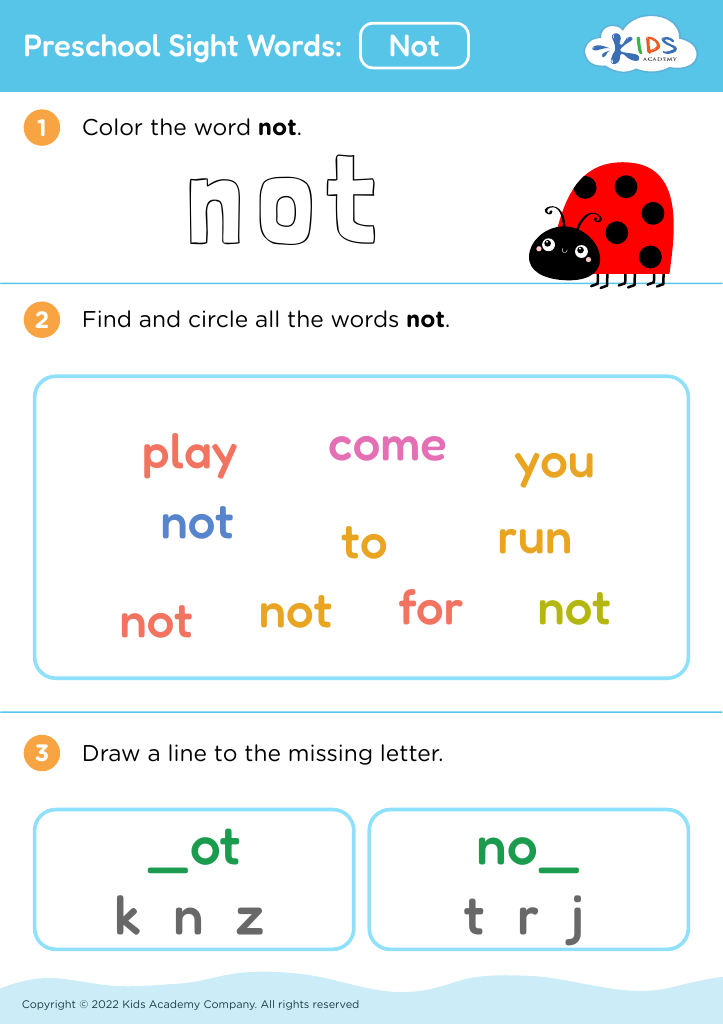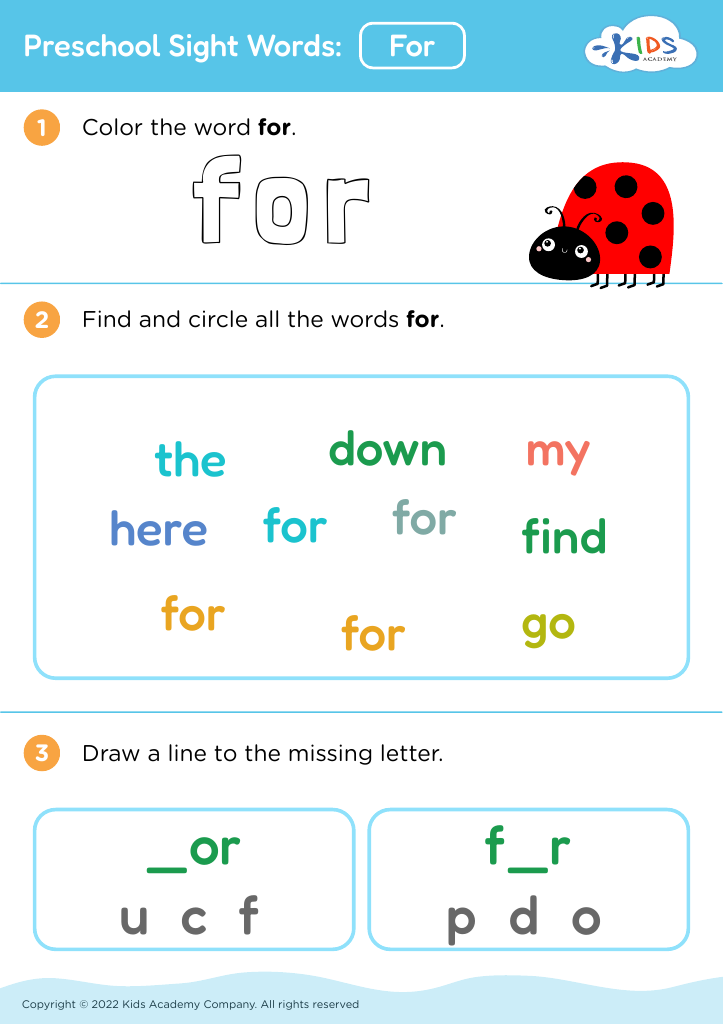Counting objects Building Vocabulary Worksheets for Ages 3-9
3 filtered results
-
From - To
Explore our engaging "Counting Objects Building Vocabulary Worksheets" designed for children ages 3-9! These interactive worksheets help young learners develop essential counting skills while expanding their vocabulary. Each page features colorful images and fun activities that encourage kids to identify, count, and categorize various objects. Perfect for homeschooling, classroom use, or extra practice at home, these worksheets offer a seamless blend of counting practice and language development. Whether your child is just starting out or looking to reinforce their skills, our resources provide an entertaining way to learn. Equip your child with the tools they need for success in math and language!
Counting objects and building vocabulary are foundational skills that significantly influence a child's early development in a multitude of ways. For ages 3-9, engaging in these activities helps to lay the groundwork for mathematical understanding and language acquisition, both critical to future academic success.
Firstly, counting objects fosters numeracy skills. It teaches children to recognize numbers, understand quantities, and develop critical thinking as they begin to relate numbers to everyday situations. When parents and teachers encourage counting through play or everyday tasks, they promote skills that are key to problem-solving and logical reasoning.
Additionally, vocabulary development is essential for effective communication and comprehension. A rich vocabulary enhances a child’s ability to express themselves and understand complex ideas. Through storytelling, conversations, and interactive games, integrating new words into a child’s daily experience builds confidence and social skills.
Moreover, both counting and vocabulary play significant roles in literacy and mathematics, linking language and numbers to cognitive growth. As children transition into more formal learning environments, a solid foundation in these areas aids in school readiness, setting the stage for lifelong learning. Thus, parents and teachers should prioritize these activities to support overall development and future academic achievement.


































